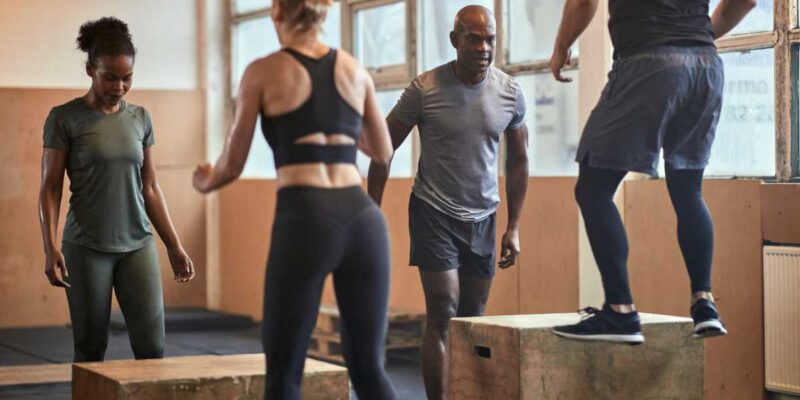Sportswear has transcended its original purpose of athletic performance to become a versatile category of clothing that combines style, functionality, and comfort. It is no longer sportswear the sports field; today, it is a staple in casual wear, leisurewear, and even high fashion. In this guide, we’ll delve into the world of sportswear, exploring its types, features, benefits, and how to choose the best options for your needs.
What is Sportswear?
Sportswear refers to clothing, footwear, and accessories specifically designed for athletic activities and physical exercise. It is crafted to provide comfort, flexibility, and support to enhance performance and protect the wearer during activities.
Types of Sportswear
1. Activewear
Activewear is a versatile category of sportswear designed for both exercise and casual wear. It includes items like:
- T-shirts
- Leggings
- Hoodies
- Joggers
2. Performance Sportswear
This type is tailored for professional athletes and fitness enthusiasts, focusing on advanced features such as moisture-wicking, breathability, and compression. Examples include:
- Compression tops and shorts
- Running shorts
- High-performance jackets
3. Sports-Specific Clothing
Clothing designed for specific sports, such as:
- Soccer jerseys
- Basketball shorts
- Tennis skirts
- Cycling kits
4. Outerwear
Designed for outdoor sports or harsh weather conditions, this category includes:
- Windbreakers
- Waterproof jackets
- Thermal vests
5. Footwear
Sportswear is incomplete without the right shoes. Footwear is tailored to specific activities, such as:
- Running shoes
- Soccer cleats
- Tennis shoes
- Hiking boots
6. Accessories
Accessories enhance performance and comfort, including:
- Headbands
- Caps
- Wristbands
- Gloves
Key Features of Quality Sportswear
When selecting sportswear, certain features ensure optimal performance and comfort. These include:
1. Moisture-Wicking Fabrics
Fabrics that draw sweat away from the skin, keeping you dry and comfortable during workouts. Examples include polyester blends and technical fabrics.
2. Breathability
Well-ventilated clothing, often with mesh panels, ensures proper airflow and regulates body temperature.
3. Stretch and Flexibility
Stretchable materials like spandex allow for unrestricted movement, making them ideal for activities like yoga or weightlifting.
4. Durability
Sportswear is often exposed to rigorous activity, so durable materials such as nylon and reinforced seams are essential.
5. Compression
Compression clothing improves circulation, reduces muscle fatigue, and aids in recovery after workouts.
6. Lightweight Construction
Lightweight materials enhance comfort and reduce drag during high-intensity activities.
Benefits of Wearing Sportswear
Sportswear isn’t just about looking good; it provides several benefits for athletes and fitness enthusiasts alike.
1. Enhanced Performance
Specialized sportswear supports muscles, improves aerodynamics, and enhances overall athletic performance.
2. Injury Prevention
Compression garments and supportive footwear can prevent injuries by stabilizing muscles and joints.
3. Improved Comfort
Breathable, moisture-wicking fabrics ensure comfort even during intense physical activity.
4. Boosted Confidence
Well-fitted, stylish sportswear can boost confidence and motivation, encouraging individuals to stay active.
5. Versatility
Modern sportswear is designed to transition seamlessly from workouts to casual settings, offering a balance of style and functionality.
How to Choose the Right Sportswear
Selecting the right sportswear depends on your activity, preferences, and goals. Here’s how to make the best choice:
1. Understand Your Needs
Identify the type of activity you’ll be doing. For example:
- High-impact activities like running require supportive shoes and moisture-wicking clothing.
- Low-impact activities like yoga prioritize stretchability and comfort.
2. Prioritize Comfort
Choose fabrics and fits that suit your body type and feel comfortable during extended wear.
3. Look for Specialized Features
Features like UV protection, waterproofing, and reflective details can enhance your experience.
4. Check the Fit
Ensure that your sportswear fits well without being too tight or loose. A good fit allows freedom of movement while providing adequate support.
5. Focus on Quality
Invest in high-quality sportswear that lasts longer and performs better, even if it’s slightly more expensive.
Trends in Sportswear
The sportswear industry is constantly evolving, with new trends shaping its future. Here are some notable trends:
1. Sustainable Sportswear
Eco-friendly fabrics and manufacturing processes are gaining popularity. Brands are using recycled materials like plastic bottles to create stylish and functional sportswear.
2. Athleisure
The athleisure trend blurs the line between activewear and casual wear, allowing people to wear sportswear in everyday settings.
3. Smart Sportswear
Technology-infused clothing, such as fitness trackers embedded in fabrics, is on the rise, offering real-time performance data.
4. Bold Colors and Patterns
Modern sportswear embraces bold colors, graphic designs, and eye-catching patterns, making it a style statement.
Popular Brands in Sportswear
Several global brands dominate the sportswear market, including:
- Nike: Known for innovative designs and high-quality products.
- Adidas: A leader in both performance sportswear and casual athleisure.
- Under Armour: Popular for compression and performance wear.
- Puma: Offers stylish and functional sportswear for a variety of activities.
- Lululemon: Renowned for yoga and fitness wear with a focus on comfort and style.
Caring for Your Sportswear
Proper care ensures that your sportswear lasts longer and retains its functionality.
- Wash Regularly: Use mild detergents and cold water to maintain fabric quality.
- Avoid Fabric Softeners: They can reduce moisture-wicking properties.
- Air Dry: Avoid using dryers as heat can damage stretchable materials.
- Store Properly: Keep your sportswear in a dry place to prevent odor and bacteria growth.
Conclusion
Sportswear is an essential part of modern life, catering to both athletic needs and casual wear preferences. Its versatility, comfort, and functionality make it a must-have for people of all ages and lifestyles. Whether you’re hitting the gym, running errands, or lounging at home, the right sportswear can make a significant difference in your day.
By understanding the types, features, and benefits of sportswear, as well as how to choose and care for it, you can ensure optimal performance, comfort, and style. As the industry continues to evolve with innovative designs and sustainable practices, sportswear will remain a cornerstone of active living and fashion. So, whether you’re an athlete or simply looking for comfortable, stylish clothing, investing in high-quality sportswear is always a smart choice.
